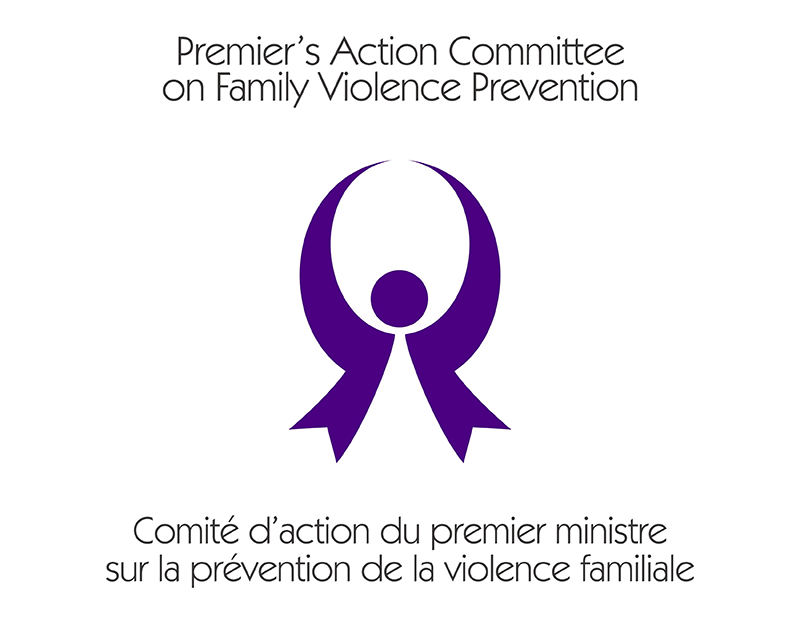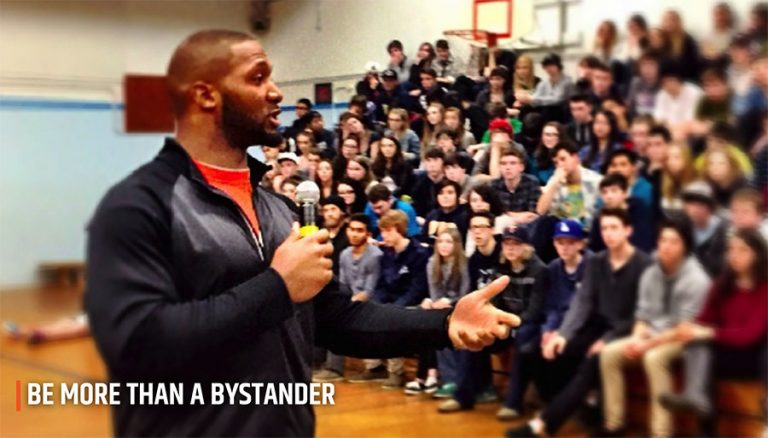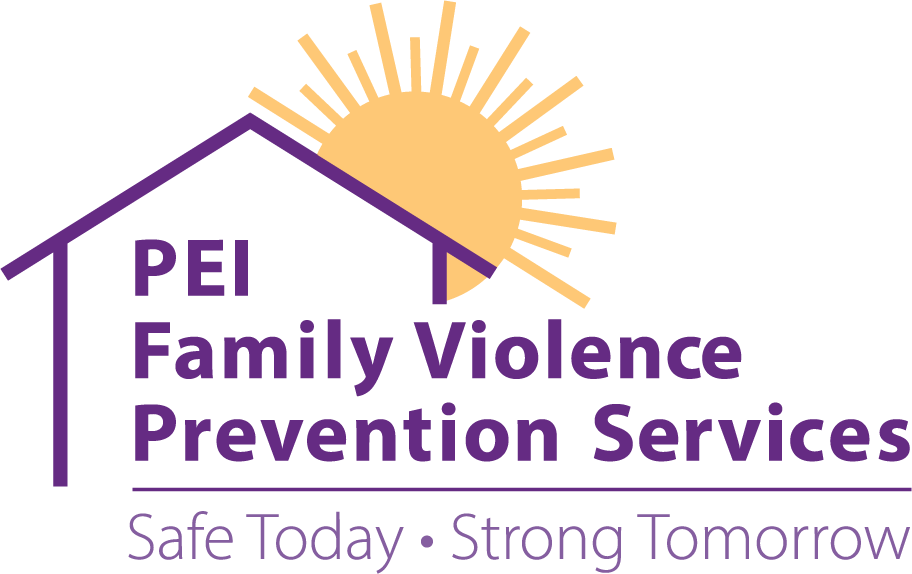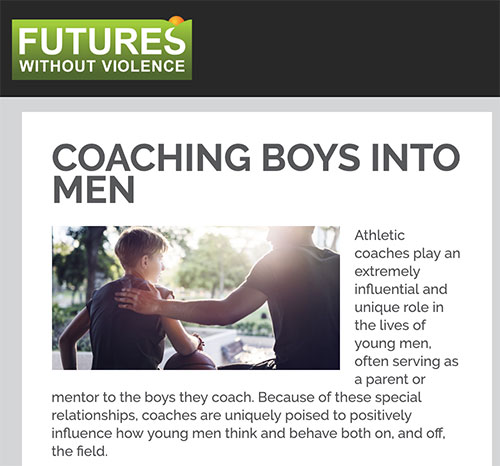Engaging Men and Boys

Created with collaboration and funding from the Premier’s Action Committee on Family Violence Prevention (PAC) and the Engaging Men and Boys Working Group.
Preventing family violence is everyone’s business.
Men and boys have an important role to play.
Many of us are already working to change our society to be more equal and just. We reject the traditional, narrow definitions of masculinity.
As men who want to address violence, it is important that we show leadership by engaging other men and boys in helping to change our society. This resource provides ideas for engaging others. Real strength is being part of the solution to stop family violence.
Young People & Dating
Intimate Relationships
Fatherhood
Community and Societal Attitudes
Young People & Dating
The challenge: Young men are taught that being "manly" means having many sexual conquests.
What men are doing: As men who want to address violence, we are challenging cultural assumptions about how men and women should behave in sexual relationships. This work starts with understanding masculinity.
Masculinity is a set of cultural beliefs and ideals about being a boy or a man. Currently, many societal messages about “being a man” contribute to unhealthy relationships. People do not understand sexual consent, or they feel uncertain about their role in getting consent to sexual activity.
Movies and television often show men as sexually aggressive and women as passive sexual objects. Men and boys do not have to push sexual limits to be “manly.” Traditional gender norms and stereotypes trap people, impacting their identity and their behavior. Many masculinity models see sex as something for men to win or take. At the same time, women and girls are taught that sex is something that needs to be protected. Men are supposed pursue sex persistently, while women are supposed to resist sexual advances.
These stereotypes from movies and television are wrong. Believing them or following them in relationships can be harmful to all genders.
The challenge: Many men and boys do not know the meaning of consent to sexual activity.
Consent is an active choice. Consent is an ongoing, clear, and enthusiastic yes! For a simple and clear explanation of consent, check out this video. Consent can be explained with a cup of tea.
The challenge: Society routinely blames the victim of sexual violence rather than addressing the sexual violence itself. This happens when we focus on what the victim was wearing, their past sexual history, and if they were using substances like alcohol.
The challenge: Many people believe that relationship conflict is private and should not be discussed in public.
A relationship should be healthy for everyone involved. Equality, trust, respect, communication, consent, and safety are all critical parts of a strong, healthy relationship. Acting physically or sexually aggressive without the other person’s consent is illegal. As well, it can cause physical, sexual, psychological, and emotional harm.
Even in times of conflict, we can choose to treat our partners with respect.
The challenge: Boys are often taught to suppress some of their feelings, like sadness, tenderness, disappointment, or hurt. Men and boys who express their emotions are often seen as less masculine.
We understand that suppressing emotions is harmful. It impacts our mental health and our relationships. As men, we need to be less afraid to talk about our feelings. We encourage men and boys to turn to their friends for emotional support. Professional mental health services are also available to help. We all play a part in ending the stigma around seeking professional support.
The challenge: When boys and men express feelings or act in nurturing ways, they are taunted by being called "girls," "women," "sissies," or other put-downs based on sexist views of femininity.
We are working to change negative societal attitudes towards women, girls, and gender-diverse people. When we hear peers tell sexist or demeaning jokes at work or school, we let them know we don’t find it funny. When we hear someone make sexualized comments or comments about another person’s body, we challenge these attitudes and behaviours. It is okay to object to something we know is wrong.
Sharing Messages About Consent
Men can help prevent violence by sharing positive messages about consent and gender equality. There are wonderful resources being created locally. Kinley, an Island musician, released a powerful music video in June 2017 for her song “Microphone.” Her work shows how important it is to educate and empower young people to make consent a priority in their relationships.
Lily Levesque’s Poem: The Wolf
Lily Levesque’s poem The Wolf is another powerful example of the impact of violence and victim blaming.
Back to Engaging Men and Boys Topics Menu
Intimate Relationships
The challenge: Women and men are not treated equally. This has negative effects on women, affecting all parts of their life, from their wages to their safety. Gender inequality harms people and their intimate relationships.
Intimate partnerships need significant trust and respect for the relationship to be healthy. Supportive communication, shared decision-making, and a solid foundation of respect and honesty also reduces conflict and promotes a healthy relationship.
The challenge: Men and boys may feel uncertain about what action to take when another man speaks about his partner in an insulting way.
Some men excuse insulting comments against women as “guy talk.” As more men speak out, our culture around “guy talk” will change. We can encourage others to avoid talking in a negative way about their partner or ex-partner.
Talking about a relationship with friends can relieve stress. However, when we feel someone’s comments about their partner have become demeaning, we can object. We can send the message that it’s never okay to put others down.
Back to Engaging Men and Boys Topics Menu
Fatherhood
Who’s your father?
Father figures can include biological fathers, adoptive fathers, step-fathers, uncles, family friends, guardians, foster parents, and other male role models who are actively involved in a child’s life.
The challenge: In our society, many people think women make better caregivers and parents than men.
Caring for children is also great for men’s emotional well-being! The opportunity to bond with a child has many far-reaching benefits. Fathers are important for children. Children can interpret a father’s absence as their own failure, so being present and spending time with our children is significant. Children need and crave positive parental involvement.
The changing role of the father
Parenting can be challenging across all stages of a child’s development. While it is more socially acceptable for women to access formal and informal parenting supports, it is important fathers have help too. We want men to know it is always okay to ask for help. As men have become more involved in parenting, men need access to parenting supports.
Seeking support or advice isn’t admitting failure. It is a sign of strength. It is a recognition that everyone can always learn and do better.
There are many ways to father your child:
- An engaged father organizes their child’s doctors’ appointments, takes them to appointments, arranges for a babysitter, buys school supplies and clothes, and makes sure teeth get brushed even when their child doesn’t want to cooperate. Parenting isn’t always easy.
- A remembering father regularly thinks about their child. He remembers the important events in his child’s life and makes an effort to be there.
A nurturing father feeds their child, gives them a bath, and reads to them or tells them stories. - An affectionate father regularly gives their child hugs and kisses, and lets them know they are loved. Affectionate fathers aren’t afraid to say “I love you,” and they know their child can never hear it too often. They know that children who feel secure and loved are more likely to have positive relationships as adults.
- An interactive father plays with their child and communicates with them, sharing ideas and positive emotions. He realizes that good communication in childhood can pave the way for good communication in the future.
- A provider/protector father does his best to make sure his family has everything they need, including nutritious food, a warm home, and safety. He also does his best to support his child’s emotional well-being.
Ways Our Communities Can be More Inclusive of Fathers
Make communities or workplaces more "father-inclusive"
Family services and "father"
As men who want to support fathers, we can point out when we see people, communities, workplaces, or businesses refer to “mothers” when they mean “parents.” Excluding fathers from signage and programming for parents makes it appear there is an expectation that only mothers parent their children. We can challenge these representations. For example, we can request local businesses install changing tables in men’s washrooms. We can point out instances where items branded for mothers could be rebranded “for parents,” as this man did.

Back to Engaging Men and Boys Topics Menu
The challenge: Our society promotes attitudes that excuse violence against women and that allow gender inequality to go unchallenged.
What men are doing: As men who want to address violence, we challenge harmful attitudes. We understand that gender equality is essential to a fair and just society. Addressing the cultural and social norms that support violence is an important part of preventing family violence. These norms are found in all areas of community life: schools and colleges, religious organizations, politics, workplaces, the media, and more.
We can:
- Speak up when someone tells a sexist joke. Discourage sexist language and encourage respect for everyone. We can object if someone speaks in a demeaning way about an individual, or about women, girls, or gender-diverse people.
- Help other men to understand the effect of violence against all women.
- Share materials on social media that promote respect for women and girls. Do not share materials that promote gender stereotypes or violence.
- Volunteer with groups working towards gender equality. Ask how men can help or what role we can play.
- Promote programs for gender equality, including the White Ribbon Campaign, school-based programs about healthy relationships and gender roles, and bystander intervention programs.
- Object when anyone is trying to keep abuse of a family member a secret. Hiding abuse puts victims at greater risk of harm and death.
- Report abuse if we have reason to believe abuse is happening. Keep reporting until someone takes the abuse seriously.
- Report any suspected child abuse or child neglect to Child Protection Services. Child abuse includes witnessing family violence in the home. All adults have a legal obligation to report any suspicions of child abuse. Click here for information on reporting suspected child abuse.
- Report any abuse of older adults. If we suspect an older adult is being harmed it is important to share that information with Adult Protection Services. Click here for information on reporting suspected abuse of a vulnerable adult.
The challenge: Women and girls need men and boys to help promote equality and end family violence.
What men are doing: As men who want to address violence, we are actively involved in violence prevention and we are encouraging other men to join us. We know that success depends on everyone working on violence prevention, including people whose behaviour is abusive or violent, people who have experienced violence, service providers, governments, community groups, the media, and average citizens.
As a team, we must encourage men and boys to intervene when they see or hear things that perpetuate gender-based violence. We must encourage those who behave violently to stop abusive behaviour and to seek services that will support this change.
The challenge: Traditional definitions of masculinity in Canada are harmful to the development and well being of men and boys.
What men are doing: As men who want to address violence, we are actively redefining masculinity. Masculinity is a set of beliefs and ideals around being a boy or a man. This can include positive concepts such as strength, assertiveness, independence, and courage. However, these positive traits become limiting when men are expected to only display these qualities, at the expense of all other characteristics.
For example, the expectation to show strength can result in difficulty showing feelings of vulnerability and weakness. The expectation that men are independent can lead to men being reluctant to show their true feelings and to ask for help when they need it. As men, we can play a critical role in redefining masculinity to include more ways of being and acting in the world.
Gender and power in families
Family violence is linked to rigid gender roles and gender expectations within the community and the family. Men can address gender inequality in various ways. We can:
- Think about policies and programs using a gender lens. For example, how will a particular program or policy affect people differently? Will the impact be different for women, mothers, single mothers, or low-income mothers, versus men, fathers, single fathers, or low-income fathers? How will it affect parents who are gender diverse?
- Re-examine the expected role of men in relationships. Be critical of traditional definitions of masculinity. For example, when someone asks a father if he is “babysitting,” respectfully challenge the idea that men only “help out” with parenting. A man looking after his child is parenting.
- Challenge the belief that family violence is private. Family violence is a community problem and requires community responses.
Challenging how traditional gender inequality affects the workplace
While the roles of mothers and fathers are changing, women still bear an unequal load of family responsibilities. The unequal division of labour at home has negative impacts on women’s employment. There are many ways to encourage gender equity in employment and the workplace. We can:
- Explore taking parental leave when a new child joins the family. We can encourage other men to take parental leave too. While this isn’t possible for everyone, it can be an option for some. If parental leave is not available in your workplace, you can work to make parental leave available.
- Reframe childcare as a shared parenting responsibility rather than a woman’s responsibility. Both parents should be responsible for child care and for arranging for childcare.
- Develop family-friendly employment policies and practices. For example, we can reduce overtime requirements, improve scheduling of shifts, allow flexible work schedules, provide leave for parents when children are sick, and other measures. Currently, parents may have to change jobs if they cannot balance parenting responsibilities with work expectations.
- Support pay equity in all workplaces. Pay equity means equal pay for equal work, no matter your gender, race, ability, or other characteristics.
Family violence can only be prevented if everyone works together.
Family violence can only be prevented if everyone works together. It takes strength and leadership to stand up to violence, like activist Jackson Katz points out here.
Back to Engaging Men and Boys Topics Menu
Other Ways to Promote Equality
Men and Sports
The challenge: Sports have traditionally been male-dominated. Sexist attitudes have been common in sports.
What men are doing: As men who want to address violence, we promote the message that being a good competitor includes being a leader in equality and violence prevention. An example of this can be seen here.

Male athletes and coaches have a lot of influence on male sports culture. When we coach or play sports, we can model respectful relationships with our peers. Athletes look to coaches and peers to teach them the skills needed to succeed. We can take these opportunities to be positive role models for men and boys.
Men also have influence as fans and consumers of professional sports. When sports teams or leagues fail to address family violence committed by coaches or athletes, we can withdraw our support as fans or boycott tickets and merchandise.
How male coaches and athletes are making a difference
As male coaches and athletes, we can encourage and support boys to become strong, respectful, and nurturing family members. We can reject sports metaphors being applied to sex, such as “scoring,” or “getting to home base.” Men can speak up when we hear harmful comments about sexual conquests. Engage Men: Coaching Boys into Men“Locker room talk” is crude talk, often involving bragging about sexual activity. We can challenge the idea that “locker room talk” is a normal part of being a man or boy. We can also reject sexist insults such as “he throws like a girl.”
For more information on the role of a good competitor, check out the U.S. organization, Futures without Violence, which developed a program called Coaching Boys into Men. They have a toolkit and training programs for coaches and institutions. ESPN’s Outside the Lines sometimes deals with issues like sexism and violence as well.
Men as Victims of Abuse
The challenge: Society often does not recognize or acknowledge family violence against men.
What men are doing: Anyone can be a victim of family violence. Many Canadian men have reported experiencing various forms of violence in their lives. Violence and abuse can happen in any relationship. Some types of abuse are emotional, mental, physical, sexual, financial, and spiritual. Some men experience abuse within heterosexual relationships, others experience abuse in same-sex relationships.
Men can also experience abuse or neglect during childhood. There are many social barriers for men seeking help and support. Negative attitudes and stigma around men asking for help can stop men from seeking support. A man might worry that asking for help makes him look weak. Family, friends, neighbours, and coworkers may be less likely to reach out to men and ask if they need support.
What men are doing: As men who want to address violence, we approach people who may be experiencing abuse. If we suspect someone is being harmed, we will speak to them privately for safety reasons, and we will encourage them to seek support services. Engage Men: PEI Web Abusive RelationshipList resources for men to access help:
Bystander Intervention
It is important to take action if we know abuse is happening.
It is important to take action if we know abuse is happening. Taking action can literally help save a life. If we know of someone being harmed but don’t know what to do, reach out to professional organizations for help. They can give advice on how to approach someone. They can help you make a plan to talk to someone in a caring, non-judgmental, and supportive way.
It is important for you to be a good listener, to believe the person, and show respect for how they feel. Here are some tip sheets with examples of ways to help that can guide you in choosing what action to take. It is important to offer support and to allow the person to make their own decisions regarding the next steps.
Make It Your Business is an educational video series for bystanders designed to help people choose a safe action they can take if they witness violence. To view the videos, with examples of ways to intervene in different situations, click here.
If you are alone, it may be safest to step away from the incident and call 911.
Back to Engaging Men and Boys Topics Menu

